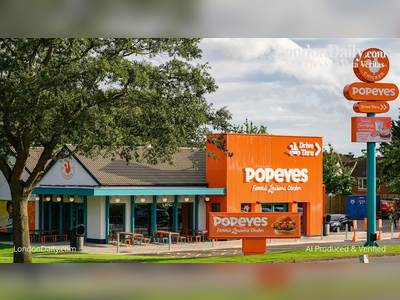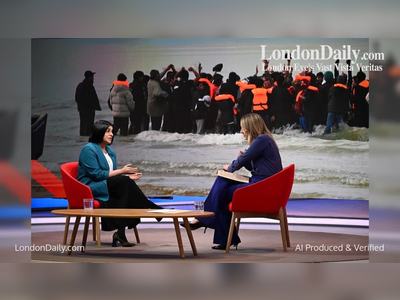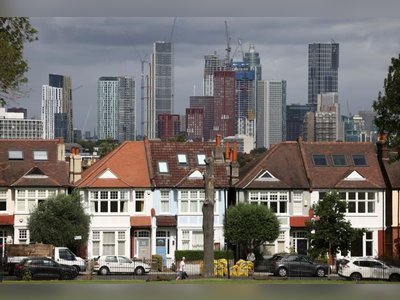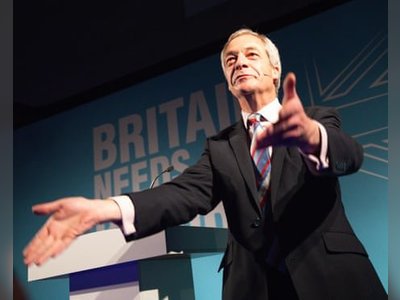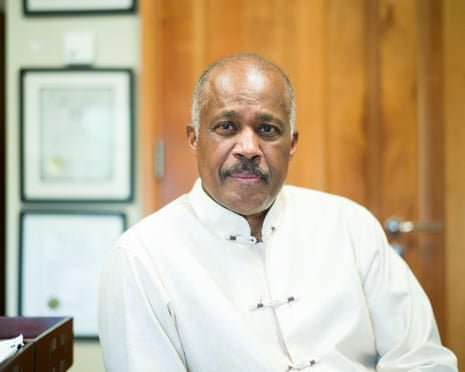
CARICOM Reparations Delegation Begins Landmark UK Mission to Advance Justice Agenda
A Caribbean delegation meets UK parliamentarians and civil society in London from November 17 to 20 to press claims for transatlantic-slavery reparations
A delegation from the CARICOM Reparations Commission (CRC) will travel to the United Kingdom from November 17 to 20 for what organisers describe as a historic first official visit to press for reparatory justice for Britain’s role in the trans-Atlantic slave trade.
The six-member team, led by Sir Hilary Beckles, will engage with UK parliamentarians, Caribbean diplomats, academics and civil-society organisations in London, marking the movement’s most visible outreach to date in Britain.
The mission, organised in collaboration with the Institute for Commonwealth Studies, aims to build strategic partnerships and broaden public awareness of the Caribbean Community’s (CARICOM) agenda for acknowledging historical injustices, securing a formal apology, debt relief and other forms of reparative action.
“This visit is historic,” said CRC programme-manager Dr Hilary Brown, adding that the campaign is entering a new phase of “impact, visibility and mobilisation”.
Between the 15th and the 19th centuries, European powers forcibly transported more than 12.5 million Africans into slavery.
The legacy of those actions remains central to CARICOM’s argument for reparatory justice.
The CRC’s ten-point plan includes formal apologies, educational initiatives, transfers of technology, debt cancellation and financial compensation.
The UK government under Keir Starmer has rejected payment of direct financial reparations or a blanket apology, although it has signalled openness to non-financial forms of restitution such as institutional reform and debt relief.
A March 2025 poll found that 63 per cent of UK adults supported a formal apology and 40 per cent backed financial reparations, despite widespread public ignorance of the UK’s historical role in slavery.
The timing of the UK visit follows earlier engagements by Caribbean delegates with European institutions and underscores increasing global momentum for reparatory justice.
Legal avenues are also being explored: the government of Jamaica has petitioned the UK Privy Council to consider whether Britain’s slave-transport policies constituted crimes against humanity and whether reparative remedies are owed.
Implementation of the CRC visit will focus on dialogues within the UK Parliament, roundtables with academics and civil society, and public outreach to raise awareness of the Caribbean viewpoint.
The outcomes will be closely watched for their diplomatic implications and potential influence on future negotiations between Britain and Caribbean states about slavery’s enduring legacies.
The six-member team, led by Sir Hilary Beckles, will engage with UK parliamentarians, Caribbean diplomats, academics and civil-society organisations in London, marking the movement’s most visible outreach to date in Britain.
The mission, organised in collaboration with the Institute for Commonwealth Studies, aims to build strategic partnerships and broaden public awareness of the Caribbean Community’s (CARICOM) agenda for acknowledging historical injustices, securing a formal apology, debt relief and other forms of reparative action.
“This visit is historic,” said CRC programme-manager Dr Hilary Brown, adding that the campaign is entering a new phase of “impact, visibility and mobilisation”.
Between the 15th and the 19th centuries, European powers forcibly transported more than 12.5 million Africans into slavery.
The legacy of those actions remains central to CARICOM’s argument for reparatory justice.
The CRC’s ten-point plan includes formal apologies, educational initiatives, transfers of technology, debt cancellation and financial compensation.
The UK government under Keir Starmer has rejected payment of direct financial reparations or a blanket apology, although it has signalled openness to non-financial forms of restitution such as institutional reform and debt relief.
A March 2025 poll found that 63 per cent of UK adults supported a formal apology and 40 per cent backed financial reparations, despite widespread public ignorance of the UK’s historical role in slavery.
The timing of the UK visit follows earlier engagements by Caribbean delegates with European institutions and underscores increasing global momentum for reparatory justice.
Legal avenues are also being explored: the government of Jamaica has petitioned the UK Privy Council to consider whether Britain’s slave-transport policies constituted crimes against humanity and whether reparative remedies are owed.
Implementation of the CRC visit will focus on dialogues within the UK Parliament, roundtables with academics and civil society, and public outreach to raise awareness of the Caribbean viewpoint.
The outcomes will be closely watched for their diplomatic implications and potential influence on future negotiations between Britain and Caribbean states about slavery’s enduring legacies.
